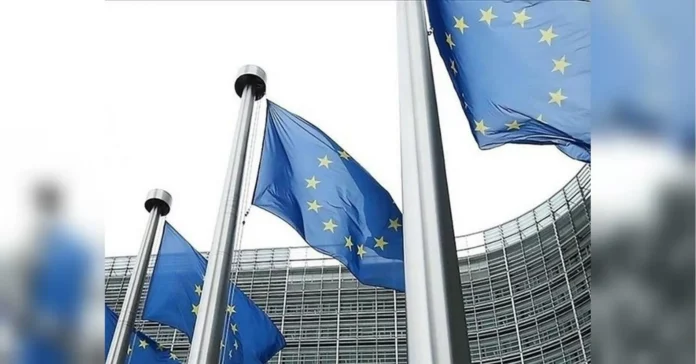Seven European countries, including Ukraine, are currently at different stages of the process of joining the European Union (EU). This process, known as enlargement, has been ongoing since the creation of the EU in 1993 and has seen the union grow from 12 to 27 member states. The EU has become an attractive destination for countries seeking closer economic, political, and social ties with its member states. Let’s take a closer look at the seven countries and their progress towards EU membership.
Ukraine, a country located in Eastern Europe, has been pursuing EU membership since the early 1990s. It signed a Partnership and Cooperation Agreement with the EU in 1994, which aimed to strengthen political and economic ties between the two parties. In 2008, Ukraine submitted an official application for membership, but progress has been slow due to political instability and ongoing conflicts with Russia. However, in recent years, Ukraine has made significant strides towards fulfilling the EU’s membership criteria, including implementing economic and judicial reforms, and strengthening democracy and the rule of law.
Another Eastern European country, Albania, has also been actively seeking EU membership since the early 2000s. In 2009, it submitted an official application and was granted candidate status in 2014. Since then, Albania has made significant progress in meeting the EU’s membership criteria, particularly in the areas of judicial reform and fighting corruption. However, the country still faces challenges in areas such as human rights and freedom of the press, which are important values for the EU.
In the Western Balkans, Montenegro and Serbia are both official candidates for EU membership. Montenegro submitted its application in 2008 and was granted candidate status in 2010. Since then, it has made significant progress in areas such as the rule of law and the fight against corruption, but it still faces challenges in areas such as media freedom and the protection of minority rights. Serbia, on the other hand, submitted its application in 2009 and was granted candidate status in 2012. It has made progress in areas such as economic reforms and the normalization of relations with Kosovo, but it still faces challenges in areas such as the rule of law and the fight against corruption.
In the Western Balkans, North Macedonia and Bosnia and Herzegovina are both potential candidates for EU membership. North Macedonia submitted its application in 2004 and was granted candidate status in 2005. It has made significant progress in areas such as the rule of law and the fight against corruption, but it still faces challenges in areas such as media freedom and the protection of minority rights. Bosnia and Herzegovina submitted its application in 2016 and is currently in the early stages of the membership process. It still faces challenges in areas such as political stability and the rule of law.
Finally, Turkey, a country located at the crossroads of Europe and Asia, has been in the process of joining the EU since 1987. It was granted candidate status in 1999 and has since made progress in areas such as economic and political reforms. However, negotiations have been stalled since 2016 due to concerns over human rights and the rule of law in the country.
The EU’s enlargement process is based on the Copenhagen criteria, which include political stability, democracy, the rule of law, human rights, and a functioning market economy. These criteria are essential for countries seeking to join the EU, as they ensure that new members are aligned with the values and principles of the union. The process also involves negotiations between the EU and the candidate country, where the candidate must adopt and implement EU laws and regulations, known as the acquis communautaire.
In conclusion, the seven countries mentioned above are at various stages of the process of joining the EU. While some have made significant progress, others still face challenges in meeting the EU’s membership criteria. However, the EU remains committed to the enlargement process and continues to support these countries in their efforts towards EU membership. The potential benefits of joining the EU, such as increased trade, investment, and political stability, make it an attractive prospect for these countries. As the EU continues to grow, it is essential to ensure that new members are fully aligned with the values and principles of the union.

